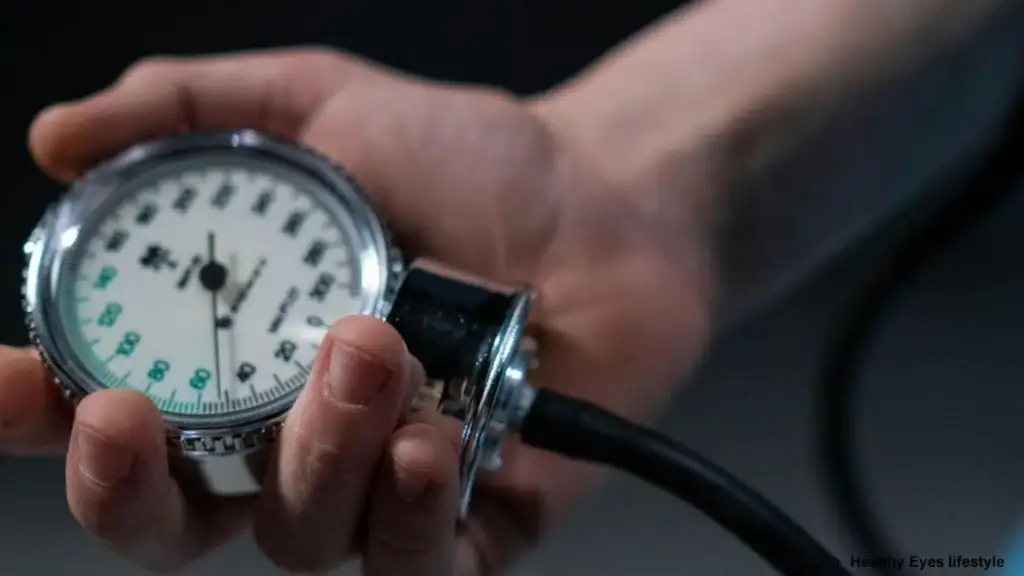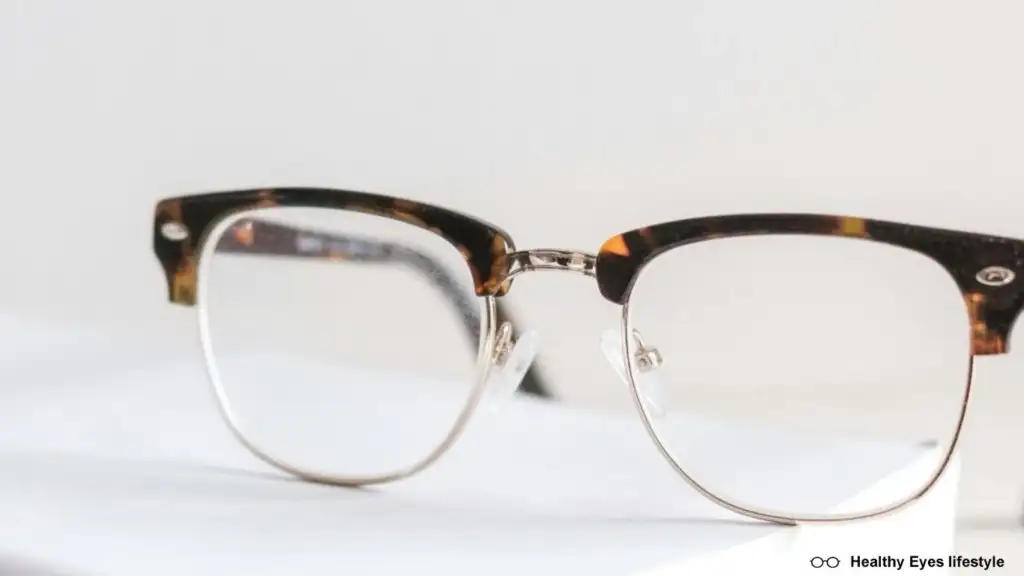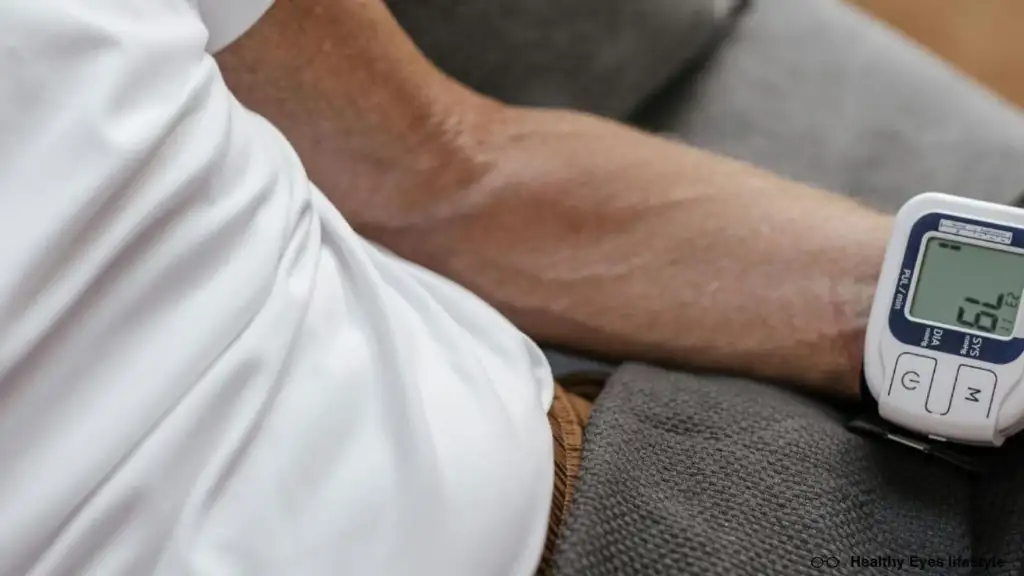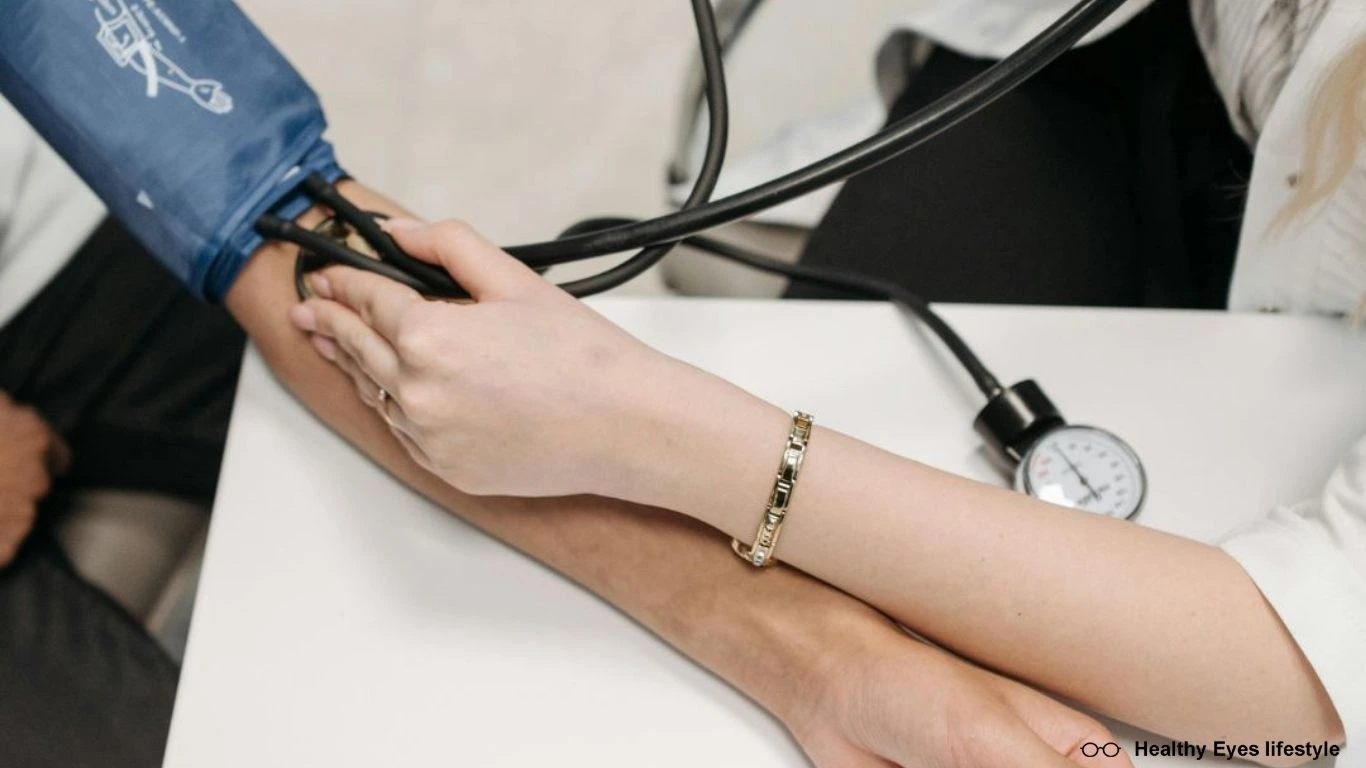Share This Article
Table of Contents
INTRODUCTION
High blood pressure, also known as hypertension, is often called the “silent killer” because it can develop unnoticed and lead to severe health complications. While most people are aware of the dangers it poses to the heart and kidneys, fewer understand that hypertension can also significantly impact vision. The relationship between high blood pressure and vision problems is an important one, as untreated hypertension can lead to long-term damage to your eyes and even permanent vision loss. This article will explore how high blood pressure can cause vision problems, the symptoms to watch for, and how you can protect your eye health.

What is High Blood Pressure?
High blood pressure occurs when the force of blood pushing against the walls of your arteries is consistently too high. Blood pressure readings are given as two numbers: systolic and diastolic. Systolic pressure measures the force when the heart beats, while diastolic pressure measures the force between beats. A normal blood pressure reading is usually around 120/80 mm Hg. Hypertension is diagnosed when blood pressure readings consistently exceed 130/80 mm Hg.
Chronic hypertension can cause damage to blood vessels, including those that supply your eyes. Over time, this can lead to various vision problems.
| Blood Pressure Category | Systolic (mm Hg) | Diastolic (mm Hg) | Description | Implications |
| Normal | Less than 120 | Less than 80 | Optimal blood pressure | Healthy range; lifestyle changes encouraged. |
| Elevated | 120–129 | Less than 80 | Increased risk of developing hypertension | Lifestyle modifications recommended to lower risk. |
| Hypertension Stage 1 | 130–139 | 80–89 | Mild hypertension | Lifestyle changes and possible medication needed. |
| Hypertension Stage 2 | 140 or higher | 90 or higher | Moderate to severe hypertension | Requires medical intervention; increased health risks. |
| Hypertensive Crisis | Higher than 180 | Higher than 120 | Severe hypertension requiring immediate attention | Medical emergency; risk of heart attack or stroke. |

How High Blood Pressure Affects the Eyes
When high blood pressure is left untreated, it can damage the delicate blood vessels in the retina, the part of the eye responsible for receiving and processing light. The eye’s retina is highly sensitive, and any changes in blood flow or pressure can affect vision. The most common eye condition associated with high blood pressure is hypertensive retinopathy.
1. Hypertensive Retinopathy
Hypertensive retinopathy occurs when high blood pressure causes damage to the blood vessels in the retina. These blood vessels can become narrow, blocked, or even rupture due to the increased pressure, leading to a variety of visual symptoms.
Common signs and symptoms of hypertensive retinopathy include:
- Blurred vision: As blood vessels in the retina are damaged, vision can become blurry.
- Reduced vision: In severe cases, vision can become permanently impaired.
- Eye swelling: Increased pressure in the eye can cause swelling of the optic nerve and surrounding areas.
- Double vision: Disruption in blood flow may cause visual disturbances such as seeing double.
Without treatment, hypertensive retinopathy can progress to more serious complications, including complete vision loss.
2. Choroidopathy
Choroidopathy refers to damage to the choroid, the layer of blood vessels between the retina and the sclera (the white part of the eye). This condition can develop as a result of chronic hypertension. It is less common than hypertensive retinopathy but can still lead to significant vision problems.
Symptoms include:
- Blisters or lesions: Small blisters can form under the retina, causing distorted or blurry vision.
- Scarring: Long-term hypertension can cause scarring of the choroid, leading to permanent damage and vision impairment.
3. Optic Neuropathy
High blood pressure can also reduce the blood flow to the optic nerve, which carries visual information from the eyes to the brain. Optic neuropathy, also known as ischemic optic neuropathy, occurs when the optic nerve becomes damaged due to a lack of blood supply. This can result in:
- Sudden vision loss: A partial or complete loss of vision in one or both eyes.
- Visual field defects: Areas of the visual field may be lost or blurred.
- Eye pain: In some cases, optic neuropathy can cause pain around the eyes.
Optic neuropathy can have lasting effects on vision and may not be reversible if not treated early.
4. Retinal Vein Occlusion
Retinal vein occlusion occurs when one of the veins responsible for draining blood from the retina becomes blocked. Hypertension is a significant risk factor for this condition because elevated blood pressure increases the likelihood of blood vessel blockages. This condition can cause sudden and severe vision problems, including:
- Blurred vision: This may develop suddenly and can worsen over time.
- Sudden vision loss: Depending on the location of the blockage, a person may experience a complete loss of vision in one eye.
- Floaters: Small dark spots or lines that drift across the field of vision.
Retinal vein occlusion can lead to permanent vision loss if not addressed promptly.
Symptoms to Watch For
It’s important to recognize the early signs of high blood pressure-related vision problems. Catching symptoms early can help prevent further damage to your eyesight. Some key symptoms to be aware of include:
- Blurred or distorted vision
- Sudden vision loss
- Double vision
- Eye pain or discomfort
- Seeing floaters or dark spots
If you experience any of these symptoms, especially if you have been diagnosed with hypertension, seek medical attention immediately.

How to Protect Your Eyes from High Blood Pressure
The best way to protect your vision from the effects of high blood pressure is to manage your overall health. Taking steps to control your blood pressure can greatly reduce the risk of eye problems and prevent further damage if hypertension has already caused some level of harm.
1. Regular Blood Pressure Monitoring
One of the simplest and most effective ways to manage high blood pressure is to monitor it regularly. Home blood pressure monitors are readily available, and tracking your numbers can help you catch any changes early. If your readings are consistently high, consult a healthcare provider for advice on how to lower your blood pressure.
2. Medications
If lifestyle changes alone aren’t enough to control your blood pressure, your doctor may prescribe medications. Common types of antihypertensive drugs include diuretics, ACE inhibitors, and beta-blockers. Taking these medications as prescribed can prevent further damage to your blood vessels, including those in your eyes.
3. Lifestyle Changes
Making healthy lifestyle choices can have a significant impact on your blood pressure. Consider the following tips:
- Healthy diet: A diet rich in fruits, vegetables, whole grains, and lean proteins can help lower blood pressure.
- Exercise: Regular physical activity, such as walking, swimming, or cycling, can reduce blood pressure and improve circulation.
- Limit alcohol and salt intake: Too much alcohol and salt can raise blood pressure, so limiting consumption is important for maintaining healthy blood pressure levels.
- Quit smoking: Smoking damages blood vessels and raises blood pressure. Quitting smoking can improve overall health and reduce the risk of vision problems.
- Stress management: Techniques such as meditation, deep breathing exercises, and yoga can help manage stress levels.
4. Regular Eye Exams
Regular eye exams are crucial for detecting any early signs of hypertensive damage to the eyes. Your eye doctor can examine the blood vessels in your retina and identify any abnormalities. If you have hypertension, it’s especially important to have routine eye check-ups, as this will help catch any issues before they become severe.
When to Seek Medical Attention
If you have high blood pressure and experience sudden changes in your vision, it’s essential to seek medical attention immediately. These symptoms can be a sign of serious eye conditions that may lead to permanent vision loss if not treated quickly. Your healthcare provider can help diagnose and treat the underlying causes of your vision problems.
Conclusion
High blood pressure is not only a threat to your heart and kidneys but can also have devastating effects on your vision. Conditions like hypertensive retinopathy, choroidopathy, and optic neuropathy can develop silently, leading to long-term damage and even blindness if not addressed. By managing your blood pressure, making healthy lifestyle changes, and having regular eye exams, you can protect your eyes from the damaging effects of hypertension. Early detection and treatment are key to preserving your vision and maintaining overall eye health.
By focusing on controlling high blood pressure, you not only safeguard your cardiovascular health but also ensure that your eyes remain healthy for years to come.
FAQS
How does diabetes affect vision?
Diabetes can lead to several eye problems, the most common being diabetic retinopathy, which occurs when high blood sugar levels damage the blood vessels in the retina. This can result in blurred vision, floaters, and even vision loss if not treated. Other conditions related to diabetes include cataracts and glaucoma, which can also impair vision.
What can be done to prevent vision problems related to diabetes?
To prevent vision problems, individuals with diabetes should maintain good blood sugar control through a healthy diet, regular exercise, and medication as prescribed. Additionally, having regular eye exams can help detect any changes early, allowing for timely intervention and treatment.
öä



